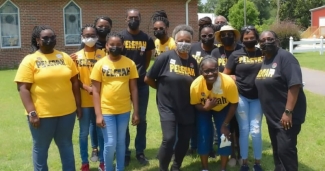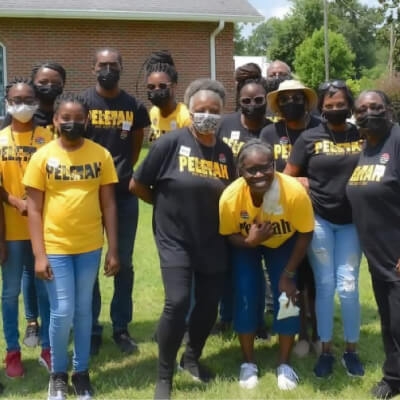Partner Spotlight: Peletah Ministries
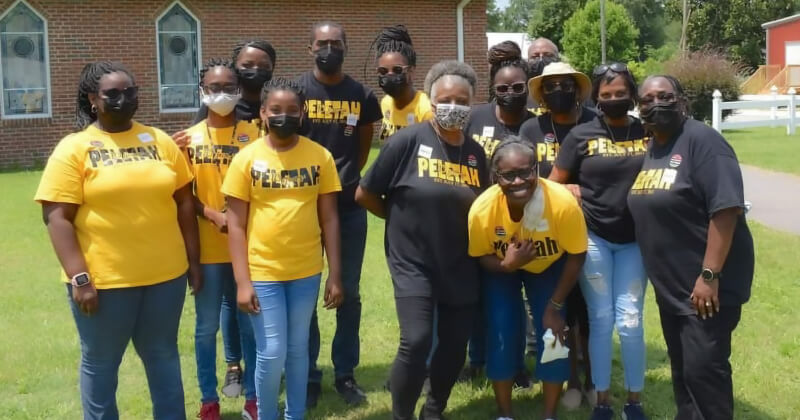
[Editor’s Note: In 2021, Alianza Nacional de Campesinas, Migrant Clinicians Network (MCN), Rural Coalition and 20 organizational partners and members mobilized 221 community health outreach workers across 20 states and Puerto Rico through a learning collaborative to encourage vaccination within rural communities of color including Black and Indigenous communities. Funded by an $8.1 million grant from the Health Resources & Services Administration, the effort aims to raise vaccination rates among immigrant and migrant farmworkers and rural communities of color through reinforcing COVID-19 information, addressing vaccine hesitancy and accessibility, and assisting in countering misinformation and disinformation.]
Since the start of the COVID-19 pandemic, Community Health Worker (CHW) safety has increasingly been highlighted as a topic of concern. Over the span of MCN’s many COVID-19 learning collaboratives, partners across the country have frequently asked questions about how to deal with hostile situations they have encountered in communities. Peletah Ministries, an MCN partner located in Craven County, North Carolina and a participant in our learning collaboratives, shared a best practice guide with us for keeping CHWs safe. Initially developed for Peletah Ministries’ workers and volunteers, the useful model focuses on three key areas: safety in numbers, disengaging hostile individuals, and awareness of factors that may elevate hostility experienced by CHWs. Presented by Dawn Gibson, PhD, the Executive Pastor at Peletah Ministries, this safety guide was shared to encourage other groups in the learning collaborative to adopt similar guides and policies of their own. Internal safety resources are a necessity for both the safety of CHWs, as well as the continuance of their vaccine equity work within rural and underserved communities.
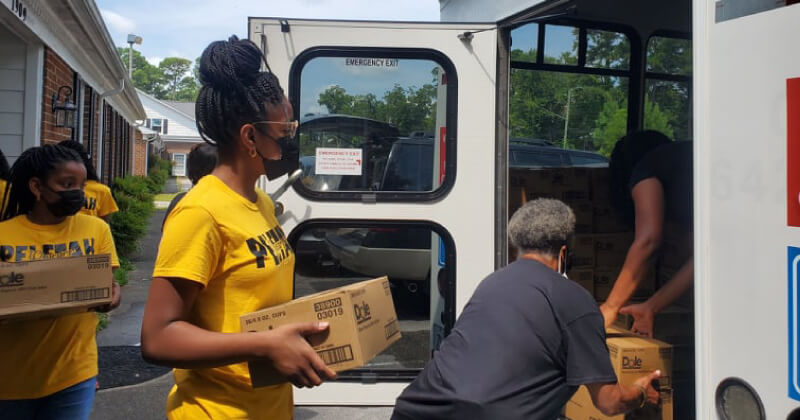
In the first section of their three-part guide, Peletah Ministries highlights the importance of a buddy system. “There should be no less than nine people on a project,” shared Dr. Gibson. This number was found to be the most effective for Peletah Ministries, where much of their work occurs in vaccine-hesitant areas. They adopted this number as their organization’s policy and recommended other organizations that work in similar environments do the same. For their organization, this recommendation applies to larger events where Peletah Ministries comes into communities with their organization’s own transportation and food trucks. Adhering to ‘safety in numbers’ makes it easier for organizations to focus on calming individuals and de-escalating potentially hostile situations while allowing other members of the team to continue to focus on the initial goal of the project. In one case, Peletah Ministries provided support to community election events during the election season and brought a large team to an event in order to protect themselves while also serving their community.
The second part of Peletah Ministries' guide overviews helpful tips for disengaging with hostile community members, providing CHWs advice on how to deescalate or end interactions with hostile individuals and stop an encounter before it escalates. Dr. Gibson and her team stressed the importance of keeping calm and not getting emotional with people who may not want to be vaccinated or talk about vaccination. They noted that conflicts could be created by CHWs pushing vaccination too aggressively with those who have no interest in getting vaccinated or those who may not believe the pandemic exists at all. Dr. Gibson recalled that at one event a particularly aggressive man confronted their group. The first step Peletah Ministries staff implemented was moving younger volunteers and women away from the hostile encounter. The men in the group then attempted to deescalate while the rest of the team packed their things to move from their location. Before events, organizations should consider who would be most vulnerable in a confrontation, and who would be best to lead de-escalation. Gender is not the only consideration to take into account when de-escalating. Race, sexuality, and disability can also be factors to consider when interacting with a hostile individual that may represent a threat to those doing public work to encourage vaccination.
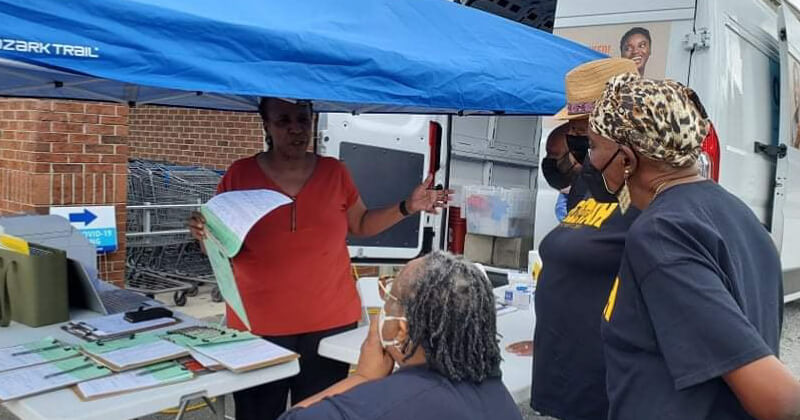
The last issue Peletah Ministries’ guide addresses is avoiding hot topics when doing health work in the community. For their work with COVID-19 vaccines, this would mean politics and religion. Despite their staff having a vast knowledge about religious issues and an ability to talk on these topics, their policy is to avoid conversations about religion when promoting vaccines. Religious leaders who have expressed doubt in the vaccine can influence their congregation. Dr. Gibson noted the importance of avoiding directly debating the messages given by these leaders. “If I say something to them, then I’m talking against their pastor,” Dr. Gibson said. “This is a person that shows up when you need something, this is a person that shows up for prayer, they visit you in the hospital. I have to be very careful when the messenger they’re getting this information from is someone they trust.” Dr. Gibson explained that masks, vaccines, issues of social distancing, and other preventative measures have become increasingly political, causing staff to have greater difficulty staying away from political topics. However, Dr. Gibson still stressed the importance of keeping a distance from sensitive topics and specific political agendas, explaining that it makes conversations about vaccination easier for CHWs when they can focus on what really matters: vaccines are safe, and they are the best tool we have in preventing the spread of COVID-19. They are not partisan or political, but they are effective.
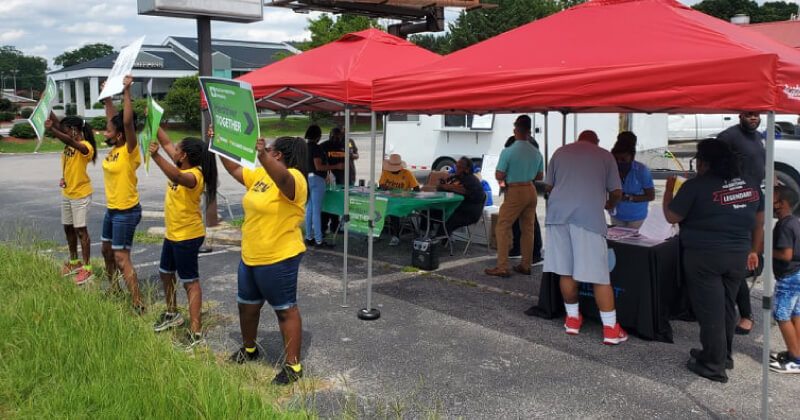
Peletah Ministries used these principles during their Community Caravan, a weekend where they traveled through low vaccination areas of North Carolina, bringing groceries to families struggling during the pandemic and sharing key information about COVID-19 vaccines and how families can protect themselves from the virus. The weekend was an opportunity for Peletah Ministries to help vulnerable people, and they made the most of it while taking active steps to keep themselves safe and to prevent potential conflicts before they could happen.
Peletah Ministries’ internal practices have effectively kept them safe in the field when they do vaccination work. The organization presented these promising strategies with the hope that other community health workers focused on vaccination efforts can learn from their experiences and adapt these guidelines to best fit their organization.
Resources
If interested in learning more about Peletah Ministries, reach them at their website here.
Find more resources for CHWs and the COVID-19 pandemic on MCN’s website here.
Each week, MCN facilitated a bilingual Learning Collaborative that offered partners access to clinical staff, other experts, an extensive library of fully editable COVID-19 resources, evidence-based COVID-19 updates, and extensive communications and marketing technical assistance to support partner’s use and adaptation of resources to fit their community’s needs. Each organization shared learning collaborative content and activities with their frontline community health workers, who tirelessly promote COVID-19 vaccination in the counties, towns, and neighborhoods where they live. This blog series highlights best and promising practices used by grant partners across the country, which were shared at the learning collaboratives, creating a diverse learning environment.
This is supported by the Health Services and Resources Administration (HRSA) of the U.S. Department of Health and Human Services (HHS) as part of an award totaling $8,105,547 with 0% percentage financed with non-governmental sources. The content are those of the author(s) and do not necessarily represent the official views of, nor an endorsement, by HRSA, or the U.S. Government. For more information, please visit HRSA.gov.
Got some good news to share? Contact us on our social media pages above.
Return to the main blog page or sign up for blog updates here.
- Log in to post comments
